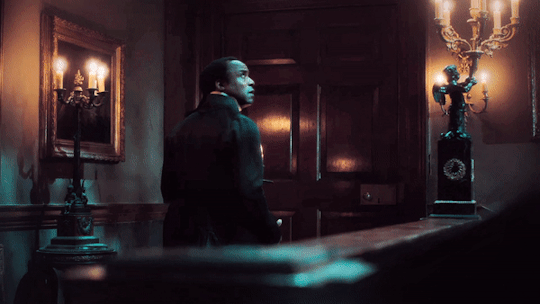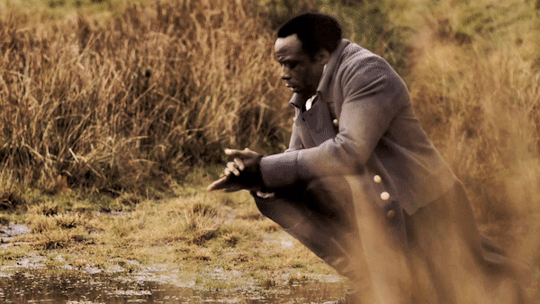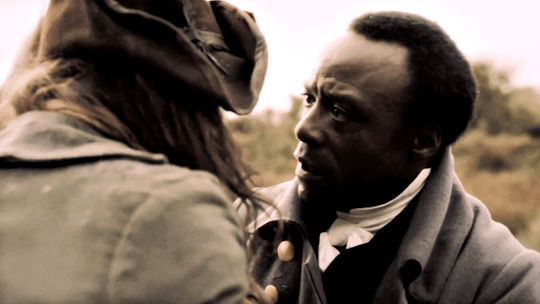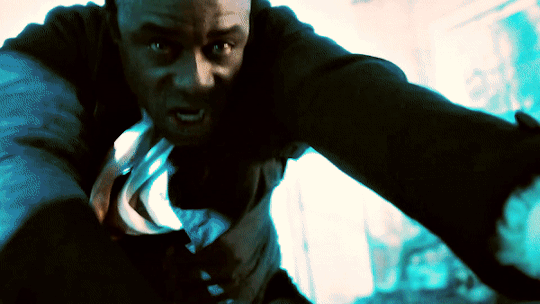#slave to society
Text
slave to society -- thrown to the wolves
0 notes
Text
anti society people share your tactics. i am the slave to capitalism you pity because i know no way out. i see you. how do you do it. please
#help#capitalism#i HATE it#slave to society#slave to capitalism#society#anti social#anti capitalism#anticorruption#i want to leave#get me out of this hell#please
0 notes
Text
wait i think actually madeline miller's circe is the heir to margaret atwood's penelopiad, unintentionally, in the way it thematizes the impossibility of real solidarity among women.
bc it's such a major part of the penelopiad how penelope creates what she thinks is a real community, a sort of family, with these young women in her household only be to reminded and continue to reinforce that they are slaves over whom she (among others) holds the power of life and death. and penelope ultimately does not or cannot hold a lasting grudge against odysseus on their behalf. she aligns herself, or circumstances force her to align herself, with odysseus instead of with other women whose positions are even more dangerous than hers. the world they live in does not allow solidarity between women across lines of class and enslavement, and penelope is also complicit in maintaining that world and her place in it.
and then the thing i found so frustrating about circe was that at every turn miller forecloses the possibility of real connections between women-- but the thing in this world that prevents that is just, like, jealousy over men. and totally needlessly. the other nymphs are prettier. glaucus loves scylla and not circe. her mom never liked her. hermes doesn't really think she's hot. athena is a rival for odysseus' attention. and the book doesn't do anything with this, it's not due to structural power imbalances or a society built on enslavement or even how patriarchy pits women against each other (circe lives alone on an island outside of society that could be another writer's lesbian separatist utopia!), it's just that circe doesn't like other women and they don't like her. end of story.
much as i don't love what atwood does with helen, it does make sense in the context of the penelopiad! thematically and in terms of characterization. atwood's penelope has internalized this idea of what it means to be a good woman and, willingly or not, she's staked everything on being seen by men as a good woman. it makes sense that she's desperately trying to pull herself up or even just cling to what little she has by dragging other women down. she does to helen what she ultimately does to the maids. she's with and for odysseus, always, not helen, and not the maids. that's the kind of world she lives in, and while she likes to think that she's resisting it with a sort of radical female community, in the end she is its agent. even if she feels bad about it. she's here to tell a story about odysseus, not about the girls he killed.
#makes me think of how emily wilson translates φιλη Ευρυκλεια as 'the slave who loved her master' or something similiar#which is the same sort of characterization atwood gives eurycleia. an enslaved woman who puts her master above other slaves and other women#and on the one hand of course she does! that's how she survives! can you blame her?#she lives in a society that pushes her at every turn to betray her fellow enslaved women!#but on the other hand it's still sad and somehow you can blame her#mine#reception#retellings#i think i finally get the penelopiad now. after reading the novel twice and seeing the play three times.#long post
141 notes
·
View notes
Text
#chris evans x reader#sans undertale#bee and puppycat#the society#eremika#sexy ebony#edward teach#sheith#girly#no.6#jodie whittaker#sissi slave#jasmine tookes
120 notes
·
View notes
Text
#kiss#danni meow#birth#mujeres#confidence#goblincore#only lovers left alive#beta slave#killian belliard#levy tran#new poets society#ts4 maxis match#snakes#obey me smut
123 notes
·
View notes
Text
#the society#eremika#sexy ebony#edward teach#sheith#no.6#sissi slave#jazz#addams family values#friendship quotes#homework#the foxhole court#Elden Ring
123 notes
·
View notes
Text
#the society#eremika#sexy ebony#edward teach#no.6#jodie whittaker#sissi slave#jasmine tookes#fitness motivation#jazz#stylish#addams family values#friendship quotes#kny smut#homework
129 notes
·
View notes
Text
I really need to get more into marxist god-building. As soon as I started reading a review of Lunacharsky’s writings on how Marxism evokes religious emotion and is basically scientific theology it was like discovering what i had believed but didn’t realise it
#also have been pretty compelled by his discussion of the role of religion in socialism#like in terms of capturing the ritual and social emotion that religion evokes for the purposes of uniting the working class#it resonated a lot with the history I’d read of the Haitian revolution and the role religion played in slave organising#like obviously religion plays a massive role in most conflicts but using it as a mobilising force for proletarian movements resolves a lot#of my confusion/uncertainty about religion in a socialist society#anyway I need to read a lot more I’m not very far into it#hoping maybe I can do a bit more reading in the summer but I have comp preparation then. augh#book club
62 notes
·
View notes
Photo

Why can't we build what they built? Because we don't believe what they believed. It's not an issue of technical ability.
- Alan Cornett
The historical tropes that people pull out in response are so predictable. “They were built by rich people using essentially slave labour” they type on their Chinese made phones wearing their Chinese made clothing. I’m glad none of our labour is exploited in 2023.
#cornett#alan cornett#quote#building#architecture#design#divine#christian#ideology#slave labour#labour#society#godless
231 notes
·
View notes
Text
Tbh one of my favorite character tropes is “alien who’s gruff and mean and expositions that ‘that’s just how [their] people are’ but then once you grow on them you realize they’re actually huge softies by their standards of their society and that’s maybe why they hang out with humans”
#baldurs gate 3#palia#palia zeki#lae’zel#bg3 lae'zel#tag your blorbos pls I’m sure there’s so many more#they’re floating in my brain somewhere but these two made me make this post#and also holding back the autistic urge to compare and analyze grimaulkin and githyanki societies#they both are ‘the strongest and smartest survive’#they both have what most humans would consider shit child rearing culture#probably slaves… the grimaulkin probably have slaves#like not just like Reth like for real slaves#it’s my niche interest crossover and i’ll post what i want#is this the palia/bg3 tag? so far it is#babblestar#baldur's gate 3#baldur's gate iii#bg3#baldur’s gate 3#baldur’s gate iii#baldurs gate laezel#lae'zel#laezel#palia open beta#palia beta#palia game#zeki#palia grimaulkin#palia mmo#tbh? throw captain grime in here
31 notes
·
View notes
Note
as a fan of the space race and the large financial black hole of musks pockets that is space X I am deeply saddened to know that I wont get any more funny haha penis rocket explosions for the next year as elons famous "rapid unscheduled dissasembly" rockets are taken of the market
elons' rockets have been environmental disasters for the land, animals, and people that the toxic chunks rain down on, and his money has been made through deeply unethical financial exploitation over a lot of markets that were made measurably worse by his participation.
also, a shit ton of the funding is from the american military industrial complex, because they want to use the technology to make better drones and missiles to kill more people more often. even if everything actually went to plan and he was able to get people to mars alive, the mars settlement project will involve generations of indentured service workers dying of radiation poisoning in sealed little bunkers on another planet while rich tourists fuck around for funsies.
it's extremely funny that the rockets go boom, but the best case scenario is he never gets to fire another one ever, dies very soon, and his assets are chopped up by competitors who never again recreate any of his work.
#WE ALREADY HAVE NASA#THEY ALREADY MAKE ROCKETS THAT DON'T EXPLODE#THEY'RE A TRUE RESEARCH AND EXPLORATION COMPANY#space x is a deeply fucked up and deceptive puppet show#for one man's useless dream#of setting up a slave society on mars#every single rock and grain of dust on mars is DEEPLY RADIOACTIVE#can't stress that enough#mars is very very radioactive#we are not going to colonize there#we need to colonize the uninhabitable parts of EARTH#there's going to be even more of those parts very very soon
93 notes
·
View notes
Text











𝒮𝓉𝑒𝓅𝒽𝑒𝓃 𝐵𝓁𝒶𝒸𝓀 ♚ 𝒩𝒶𝓂𝑒𝓁𝑒𝓈𝓈 𝒦𝒾𝓃𝑔
"Skin can mean a great deal. Mine means that any man may strike me in a public place and never fear the consequences. It means that my friends do not always like to be seen with me in the street. It means that no matter how many books I read, or languages I master, I will never be any thing but a curiosity - like a talking pig or a mathematical horse."
Vinculas grinned. " And mine means the opposite of yours. It means you will be raised up on high, Nameless King. It means your kingdom is waiting for you and your enemy shall be destroyed. It means the hour is almost come. The nameless slave shall wear a silver crown; the nameless slave shall be a king in a strange country…"
-Jonathan Strange and Mr Norell
#jonathan strange and mr norrell#stephen black#nameless king#nameless slave#Wow wow#Crying while I make this#such a beautiful character and so applicable to todays world#how many nameless kings have been mistreated in todays society#racism#discrimination#Ariyon Bakare#flashing images#flashing lights#susanna clarke#butler#jsamn#Jesters Deck Of Cards
34 notes
·
View notes
Text
i feel like the vibe of the wob is kind of just that brandon hasn’t really thought about it or considered that people still care, but the more people ask these kinds of things the more he will know we ARE waiting for him to deliver on these issues
#i think if you don’t want to write a story about class dynamics then don’t#but don’t write a story about class dynamics and then abandon it half way#when i was talking to my irl friend about this; he enjoyed that the society was flawed and didn’t think it needed to be fixed#as part of the main plot. and to an extent i agree. that it could get cheesy to just solve all of society’s problems#(like jasnah freeing the slaves IMO)#but at the same time brandon DID make the story ABOUT those issues with the kaladin and moash plot lines#he DECIDED to make the story about that already#he doesn’t need to solve all society’s issues#but if he fails to show a good continuation of those ideas then it IS bad writing#captain america tony you chose to do that gif#the stormlight archive
37 notes
·
View notes
Text

Capitalists
#capitalism#capitalist society#capitalist system#capitalists#comics#comic#cartoons#cartoon#memes#meme#class war#poverty#homeless#minimum wage#wage slavery#living wage#wage theft#wage war#fair wages#slave wages#livable wages#ausgov#politas#auspol#tasgov#taspol#australia#fuck neoliberals#neoliberal capitalism#anthony albanese
18 notes
·
View notes
Text
I just want it on record I've been pissed at Solomon since before he was actually introduced in the lessons.
#obey me#I'd be ignoring him in surprise guest like MY GUY IDK WHO THE FUCK YOU ARE#and he's like oh u feel it too... im naming our future babies rn...#had a brief truce in season three until the tail game convo with asmo#WHERE HE PROCEEDS TO BE LIKE OH THIS TEST WAS TO SEE IF YOU KNOW HOW CONSENT WORKS#SIR#BITCH WERE YOU GRANDFATHERED INTO THE SORCERER SOCIETY BECAUSE UH YOU WOULD FAIL THAT TEST#revoking his license and his lfie#throwback to the time he just came up to MC in the RAD halls to talk about the castle he built with slave labor or whatever like yeah ok
57 notes
·
View notes
Text
Vidal [...] emphasizes the close relationship that existed between the Louisiana settlement [at New Orleans] and the Caribbean island [Haiti, the colony of Saint-Domingue] during the former’s French colonial period (1718-69). It has become a bit of a popular adage to describe New Orleans as the northernmost port of the Caribbean, but Vidal’s Caribbean New Orleans: Empire, Race, and the Making of a Slave Society demonstrates the substance behind these claims. [...] New Orleans is the missing link, a late-forming city that largely inherited its founding ideas, practices, peoples, plants, and laws from its longer-established imperial neighbors [Spain, France, Britain, the United States]. It thus offers the ideal case study in which to consider how colonies around the Americas developed in conversation with one another [...].
Vidal convincingly argues that New Orleans was a “slave society,” or a settlement in which racialized slavery informed every part of everyday life from its inception, whose physical construction was done alongside the “construction of racial categories” (p. 1).
This is an important shift within Louisiana historiography, which has long stood by [...] [the] argument that early New Orleans offered the semi-unique example of a “slave society” devolving into a “society with slaves.” Abandoned by the French following the spectacular failure of the Compagnie des Indes, the standard story goes, New Orleans became an isolated backwater until the 1770s, struggling to survive and permitting, out of sheer need, less disciplined contact between residents of European, Indigenous, and African birth and descent. [But] Vidal, in contrast, shows that, while Louisiana struggled to create a full-fledged plantation economy during the French era, this did not prevent its capital from organizing itself along the highly stratified lines of the Caribbean islands.
---
Furthermore, she argues, because New Orleans did not see many new residents after 1731, free or enslaved, and because it was a smaller settlement, white inhabitants were able to build upon these ideas in a relatively stable environment - focusing much of their energies on surveilling, containing, and disciplining the enslaved and free persons of color (p. 26). [...]
Vidal especially points to the 1729 Natchez attack and ensuing Natchez Wars [against Indigenous peoples] as pivotal moments in the militarization of white New Orleanians [...]. Subsequently, a scrupulous supervision of racial boundaries became the norm for the rest of the French era and fostered “a sense of community among white urbanites” (p. 141).
Chapter 3 takes readers to the streets, levees, and other public spaces of New Orleans, where whites sought to sculpt the privileges of “whiteness” against both residents of African birth and descent as well as one another. Elite men and their wives scuffled over the best seating at church in an effort to recreate France’s ancien régime culture; socially lower soldiers and nonslaveholders, meanwhile, carefully guarded their weaker claims at mastery through street violence that frequently targeted the enslaved and free individuals of color. [...] Beginning with a careful reading of census categories, Vidal traces how distinctions between European settlers [...] were increasingly replaced with those centered exclusively on race by 1763. These efforts were paralleled by segregating practices in other domestic spaces. Close interactions, then, as Vidal forcefully shows, effectively strengthened, rather than weakened, urban racial hierarchies. [...] [Vidal then] follows the ways in which the demographically diverse workforce of the early colony made up of white indentured servants, convicts, and soldiers in addition to enslaved Africans - gave way to associations of difficult and degrading labor limitedly with the enslaved. [...]
---
French Louisiana inherited racial categories from the Caribbean but adjusted them to fit local needs, experiencing “not so much a loosening, but a more complex transformation” of its racial regime, largely through violence (p. 371).
Vidal documents how the Superior Council utilized targeted prosecutions and punishments to increasingly “imprint terror and instill obedience” on the enslaved (p. 390). [...] [The book] thus details a society in which racial hierarchies were asserted and supported through both top-down and bottom-up policies and practices, as “no social institution or relationship was left untouched by race” (p. 504).
To this end, Vidal speaks to important conversations by historians of enslaved women in the British Caribbean, including Jennifer Morgan and Marissa Fuentes. These authors have used a similarly wide range of sources [...] [and] archives to underscore the invasive nature of colonial racism. [...] [I]n part [...] Vidal’s [chapters work] to decouple lower Louisiana history from the fur traders of New France [Ontario/Quebec, and the watersheds of the Mississippi/Missouri rivers] and to reattach it to the planters of Saint-Domingue [in Haiti and the Caribbean]. [...] Combing through administrative papers, censuses, laws, parish registers, correspondence, and judicial records from both sides of the Atlantic, readers will get a sense that there is little Cécile Vidal has not seen or considered. [...] Her book will prove essential reading [...] and it hopefully will convince an even wider audience [...] [to engage with] comparative, cis-Atlantic, and transatlantic studies of imperialism, race, and slavery.
---
All text above by: Kristin C. Lee. "Review of Vidal, Cécile, Caribbean New Orleans: Empire, Race, and the Making of a Slave Society". H-Atlantic, H-Net Reviews. January 2022. [Bold emphasis and some paragraph breaks/contractions added by me.]
#tho american louisiana 1805ish to 1865 was obviously brutal slave society and an epicenter of US slavery vidals book makes case that#earlier french new orleans also fundamentally slave society in own distinct ways despite citys reputation as relatively cosmopolitan#and today louisiana now home to cancer alley pollution y fossil fuel pipelines y industrial chemical refineries y prisons built on plantati#300 years of violent racial hierarchy in louisiana wearing different masks#her footnotes are extensive y detailed enough to be a whole other book quite the synthesis
17 notes
·
View notes